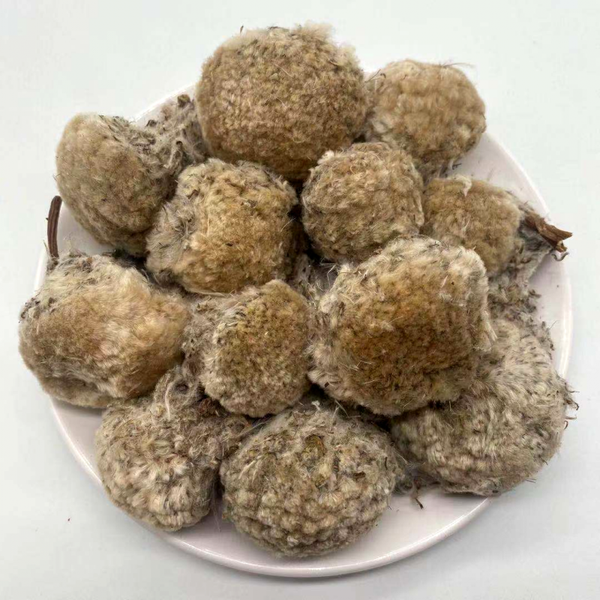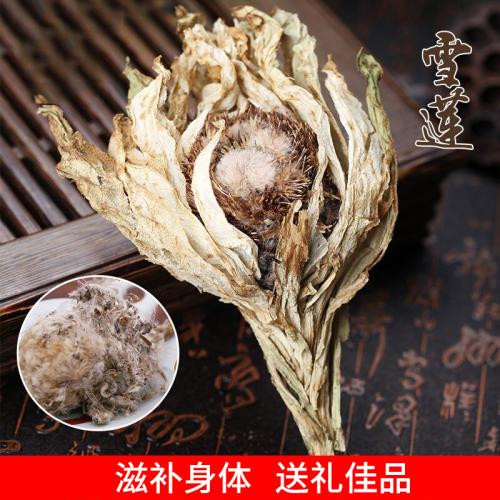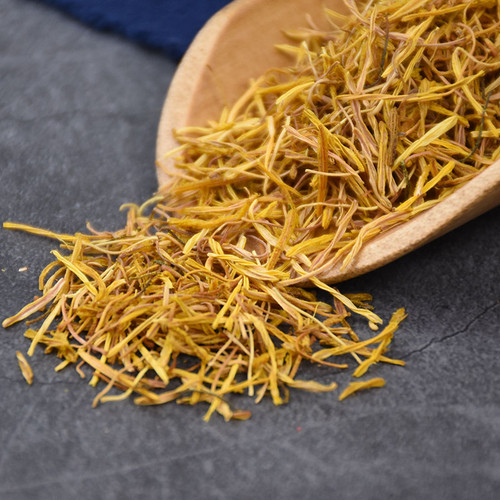Product Overview
Parts used: Dried aerial parts
TCM category: Herbs that invigorate the Blood
TCM nature: Warm
TCM taste(s): Bitter Sweet
Meridian affinity: Spleen Kidney Liver
Scientific name: Saussurea involucrata
Other names: Saw-wort
Use of snow lotus (Xue Lian) in TCM
Please note that you should never self-prescribe TCM ingredients. A TCM ingredient is almost never eaten on its own but as part of a formula containing several ingredients that act together. Please consult a professional TCM practitionner, they will be best able to guide you.
Preparation: Collect the herbs during June and July, remove impurities, wash and dry.
Dosage: Use 500 grams of sake to soak 50 grams of snow lotus. Take 30 - 50 grams of the final product.
Main actions according to TCM*: Warms the Kidney to invigorate the Yang. Dispels Wind-Dampness. Activates Blood to unblock the Meridians
Primary conditions or symptoms for which snow lotus may be prescribed by TCM doctors*: Back pain Knee pain Impotence Irregular menstruation Leukorrhea Vaginal discharge Arthralgia Rheumatoid arthritis Abdominal pain Convulsions
Key TCM concepts behind snow lotus (Xue Lian)'s properties
In Traditional Chinese Medicine (TCM), snow lotus are plants that belong to the 'Herbs that invigorate the Blood' category. Like the name indicates these herbs tend to stimulate the Blood flow. In TCM they're used to help the circulation of Blood in cardiovascular conditions or menstrual irregularities as well as to treat acute pains caused by Blood Stagnation. They can also be used to treat Blood Stasis in the case of certain tumors, cysts and hardened clots.
Furthermore snow lotus are plants that are Warm in nature. This means that snow lotus tend to help people who have too much "cold" in their body, although with less effect than a plant that would be Hot in nature. Balance between Yin and Yang is a key health concept in TCM. Those who have too much cold in their body are said to either have a Yin excess (because Yin is Cold in nature) or a Yang deficiency (Yang is Hot in Nature). Depending on your condition snow lotus can help restore a harmonious balance between Yin and Yang.
Snow lotus also taste Bitter and Sweet. The so-called "five elements" theory in Chinese Medicine states that the taste of TCM ingredients is a key determinant of their action in the body. Bitter ingredients like snow lotus tend to have a cleansing action on the body by clearing heat, drying dampness and promoting elimination via urination or bowel movements. On the other hand Sweet ingredients tend to slow down acute reactions and detoxify the body. They also have a tonic effect because they replenish Qi and Blood.
The tastes of ingredients in TCM also determine what organs and meridians they target. As such snow lotus are thought to target the Spleen, the Kidney and the Liver. In TCM the Spleen assists with digestion, blood coagulation and fluid metabolism in the body. The Kidneys do not only regulate the urinary system but also play a key role in the reproductive system and the growth and aging process of the body. The Liver is often referred as the body's "general" because it is in charge of regulating the movements of Qi and body fluids. It also takes a leading role in balancing our emotions.
Use of snow lotus (Xue Lian) as food
Snow lotus are also eaten as food. It is used as an ingredient in dishes such as Snow lotus wine.










